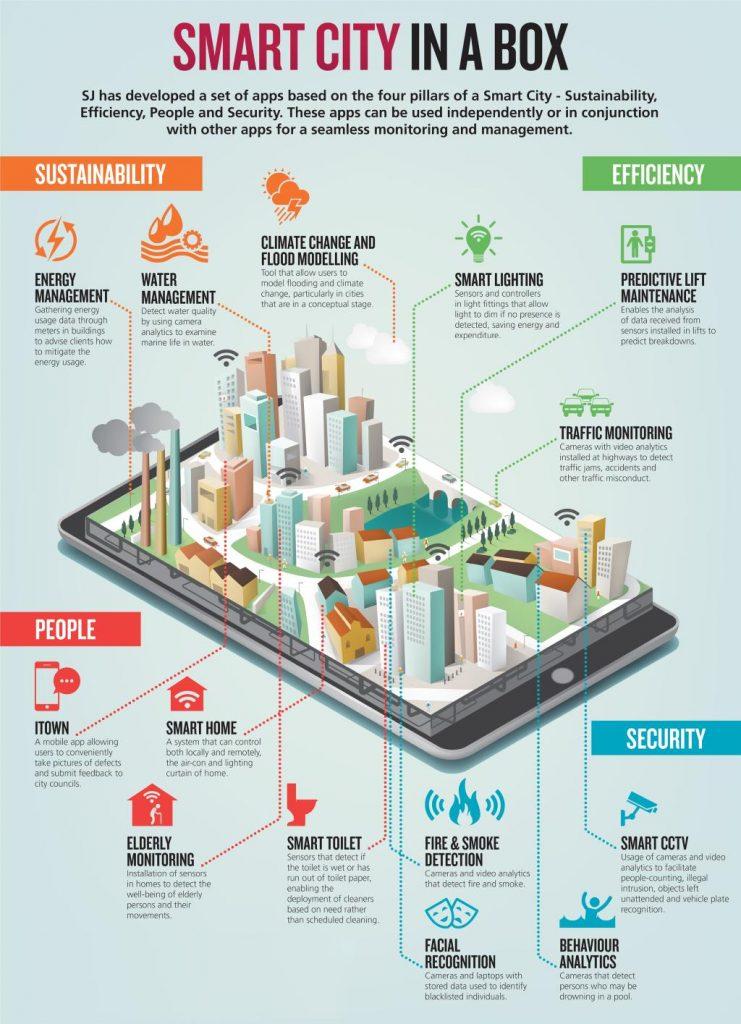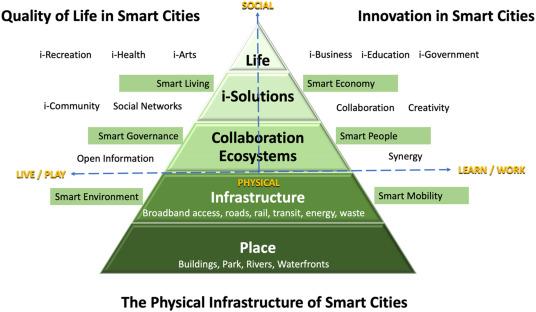As urban centers grow rapidly, harnessing technology for sustainable and efficient living environments is increasingly becoming a priority. The concept of ‘smart cities’ integrates Information and Communication Technologies (ICT) and various physical devices connected to the IoT network to optimize the efficiency of city operations and services. Innovations in this domain promise enhanced urban life, economic growth, and environmental sustainability. This article explores leading companies driving the smart city innovations, spotlighting their contributions and projects that shape the metropolises of tomorrow. Through their pioneering solutions, these enterprises are not just redefining urban living but also setting benchmarks in the global shift towards tech-integrated cityscapes.
Table of Contents
- Smart City Innovations: Leading Companies and Their Contributions
- Technological Advancements Driving Urban Transformation
- Investment Opportunities in Smart City Projects
- Regulatory Landscape and Impact on Smart City Development
- Introduction

Smart City Innovations: Leading Companies and Their Contributions
technologies for smart city solutions. Their approach hinges on the seamless incorporation of IoT technologies that manage everything from energy systems to transportation. Key contributions include smart grids that optimize electricity usage and intelligent traffic systems that reduce congestion and pollution.
- IBM – Specializes in cognitive computing. IBM’s Smart Cities Solutions help city authorities harness Big Data for urban management, enhancing everything from emergency services to waste management.
- Cisco Systems, Inc. – Focuses on connectivity. With their “Smart+Connected Communities” initiative, Cisco has rolled out numerous projects aimed at transforming physical communities into connected, digital environments. This encompasses improvements in Wi-Fi accessibility, security, and energy management.
Here is a quick overview of innovative projects led by these companies:
| Company | Project | Impact |
|---|---|---|
| Siemens AG | Smart Grids in Vienna | 30% reduction in energy waste |
| IBM | Data-Driven Healthcare in Amsterdam | Increased response rate by 50% |
| Cisco Systems, Inc. | Connected Boulevard in Nice | 20% improvement in traffic management |
This table encapsulates how pivotal projects from these companies are reshaping urban landscapes into smarter and more sustainable environments. Each project not only underscores the technical aptitude of the respective companies but also their impactful contributions towards building the cities of tomorrow. By leveraging innovative technologies, these firms are setting benchmarks in the smart city arena, reflecting their key role in this ever-evolving sector.
Technological Advancements Driving Urban Transformation
In the landscape of urban development, several companies are propelling significant technological breakthroughs. These advancements are crucial in solving urban challenges such as congestion, energy consumption, and public safety. A few frontrunners in this domain include:
- Neuroflux – Specializes in integrating IoT technology to monitor and analyze wastewater systems in real-time, significantly improving city sanitation and maintenance programs.
- UrbanCyclr – This analytics company utilizes data from mobile apps to understand and improve city biking routes, promoting greener modes of transportation.
- SmartLight – Focuses on adaptive lighting technology that reduces energy use. Their systems dim streetlights based on pedestrian and vehicular activity, which conserves electricity and reduces operational costs.
The resulting implications of these technologies are profound, offering not only enhanced operational efficiencies but also providing a foundation for sustainable urban environments. Consider the adaptation of smart grids, which lay the groundwork for future integrations of renewable energy sources. The grid’s ability to communicate and adapt to energy demands showcases the intricate role technology plays in urban planning and management.
| Company | Innovation | Impact on Urban Area |
|---|---|---|
| Neuroflux | IoT in wastewater | Improved sanitation |
| UrbanCyclr | Data-driven cycling routes | Enhanced mobility |
| SmartLight | Adaptive lighting technology | Energy conservation |
As we delve deeper into the technological enhancements, it becomes evident that the synergistic integration across various systems and sectors defines the smart cities of tomorrow. These collaborative efforts are indispensable in advancing towards comprehensive urban solutions that are not only efficient but also environmentally conscious and economically viable.
Investment Opportunities in Smart City Projects
As urban populations continue to grow, the demand for smarter, more sustainable city planning has never been greater. This growth is fueling opportunities in companies spearheading projects in sectors such as IoT connectivity, green infrastructure, and advanced transportation systems. These ventures not only aim to enhance urban living but also offer potential benefits for savvy investors.
Key players in the smart city sector include:
- Alphabet’s Sidewalk Labs: Focusing on sustainable urban development, integrating cutting-edge technology to optimize energy usage, traffic flow, and municipal services.
- Siemens AG: Advancing technologies in smart grids and building automation systems to make cities more energy-efficient.
- Cisco Systems, Inc.: Pioneering in providing robust IoT networks and cybersecurity solutions vital for the backbone of smart cities.
Investors looking to engage with smart city projects should consider the following factors:
| Factor | Relevance | Impact |
|---|---|---|
| Technological Readiness | High | Directly affects project success and scalability |
| Regulatory Environment | Medium | Can expedite or delay project launch and execution |
| Market Penetration | High | Essential for long-term profitability and growth |
These factors underscore the complexity and dynamic nature of investing in smart city projects, each providing a different layer of risk and opportunity that investors must navigate.alendar
Regulatory Landscape and Impact on Smart City Development
The acceleration of smart city development hinges significantly on the regulatory frameworks within which they operate. Governments around the world are formulating policies that influence how smart city technologies are deployed and managed. These regulations concern data privacy, urban planning, public safety, and environmental guidelines.
Key regulatory considerations include:
- Data Protection: Stringent policies requiring secure handling and privacy of citizen data collected through IoT devices.
- Sustainability Standards: Regulations mandating green building materials and renewable energy use to minimize environmental impact.
- Public Safety: Policies ensuring that technologies such as surveillance and autonomous vehicles enhance public safety without infringing on privacy rights.
It is crucial for businesses in the smart city sector to navigate these regulations adeptly. Understanding and aligning with these guidelines not only ensures compliance but can improve public trust and acceptance of new technologies. Below is a simple representation of how regulations vary by region:
| Region | Focus Area | Example of Regulation |
|---|---|---|
| Europe | Data Privacy | General Data Protection Regulation (GDPR) |
| North America | Urban Planning | LEED Certification Standards |
| Asia-Pacific | Public Safety | Safe City Initiative |
Those that successfully comprehend and adapt to these diverse regulatory landscapes will be better positioned to tailor and scale smart city solutions across global markets.
Introduction
In conclusion, the drive towards smart city innovations reflects a transformative approach aimed at enhancing urban efficiency and sustainability. Companies at the forefront are not just reshaping our urban landscapes; they are pivotal in determining how we interact with our cities’ infrastructures, integrating technology to make our daily lives more interconnected and efficient. As we continue to explore the potential of these technologies, it remains vital for stakeholders across sectors to collaborate in nurturing environments that embrace technological advancements while ensuring they are accessible and beneficial to all residents. As we move forward, monitoring the evolution and impact of these smart city innovations will be essential in guiding future development and policy-making in urban planning.




